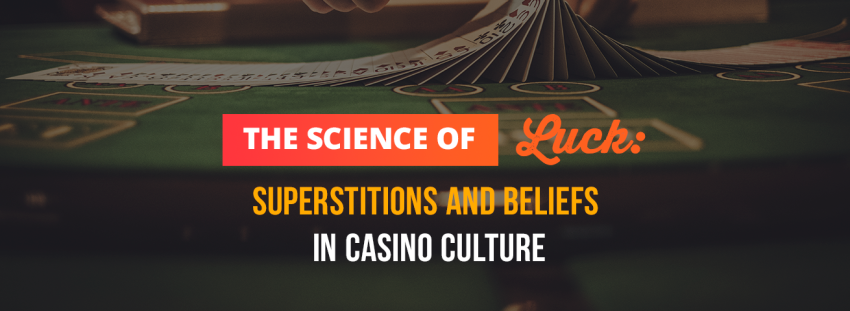The **Science of Luck in Gambling** captivates both seasoned gamblers and casual players alike, intertwining human psychology with the unpredictable world of chance. While many enter the casino hoping for that winning streak, the truth is that understanding luck can be as complex as mastering any poker strategy. It’s not purely random; factors such as luck psychology and mathematical gambling approaches play pivotal roles in shaping outcomes. Gamblers often grapple with the ongoing debate of skill vs luck, questioning how their gambling behavior is influenced by personal beliefs about fortune. Through an exploration of these themes, we can unravel the underlying mechanisms that make the thrill of gambling so irresistible.
Examining the dynamics of luck in gaming reveals an intricate web that goes beyond mere chance; it’s a blend of cognitive processes and strategic thinking. This analysis delves into the psychological nuances and gambling strategies that inform players’ decisions, highlighting the fine line between skill and mere happenstance. The complexities of gambling behavior are shaped not only by individual perspectives on fortune but also by mathematical approaches that aim to tip the odds. In our journey through these themes, we will uncover how an understanding of luck influences both the thrill and risks associated with gambling.
The Science of Luck in Gambling and Its Psychological Impact
When we talk about the science of luck in gambling, we must first understand how deeply rooted psychological factors can influence our perception of luck. Research suggests that our beliefs about luck are often tied to our personal experiences and cognitive biases. Gamblers may view certain symbols or numbers as “lucky” based on past successes, which can significantly alter their betting behaviors and strategies. These psychological nuances create a compelling layer, where the thrill of the game doesn’t just come from the chance of winning money but from our intricate relationship with luck.
Moreover, psychological studies indicate that optimism bias plays a crucial role in shaping our gambling behavior. Many gamblers falsely believe that they can control luck through choice or rituals, which can lead to increased play and even problem gambling behaviors. Understanding these psychological mechanisms helps clarify why some players continuously engage with games despite not always winning. Recognizing the interplay between luck psychology and gambling strategies is essential for developing healthy gambling habits.
Balancing Skill and Luck in Gambling Strategies
The ongoing debate surrounding skill versus luck in gambling is not just theoretical; it has practical implications for players looking to enhance their chances of winning. While games like poker undeniably require a level of skill, the perception that luck governs all outcomes can undermine the strategic planning involved. An effective gambling strategy acknowledges the randomness of luck while also incorporating skillful decision-making techniques. Players who invest time in honing their skills may find greater success in the long run compared to those who attribute their fortunes solely to luck.
Furthermore, mathematical approaches to gambling illustrate how understanding probability can shift the balance away from sheer luck. By employing statistical insights and analytical thinking, gamblers can devise strategies that minimize risk and improve their chances of winning. This mathematical perspective not only empowers players but fosters a mindset that values knowledge over blind faith in luck. Ultimately, acknowledging the relationship between luck and skill enables gamblers to develop robust strategies, transforming their gambling experience and possibly enhancing their overall success.
Frequently Asked Questions
What role does luck psychology play in the science of luck in gambling?
Luck psychology significantly influences gambling behavior by shaping how individuals perceive outcomes. Research indicates that beliefs about luck can lead to cognitive biases, impacting decision-making in games of chance. Understanding luck psychology helps gamblers recognize these biases, allowing them to adjust their strategies accordingly. Ultimately, luck psychology interplays with individual personality traits to create unique gambling profiles that can affect chances of success.
How do gambling strategies incorporate the concepts of skill vs luck in the science of luck in gambling?
Gambling strategies often navigate the delicate balance between skill and luck, which is a critical aspect of the science of luck in gambling. While games such as slots rely heavily on luck, others like poker enable players to employ strategic thinking and skill to enhance their winning potential. Understanding this distinction enables gamblers to develop informed strategies that prioritize skills where applicable, harnessing both luck and mathematical approaches to optimize their outcomes.
| Key Points | Description |
|---|---|
| Introduction | Explores the fascination of gambling and the complex interplay of luck, skill, and psychology. |
| Understanding Luck | Luck is often mixed with skill; strategic thinking can influence gambling outcomes. |
| Psychology Behind Gambling | Psychological factors, cultural traditions, and excitement drive gambling behavior. |
| Skill vs. Luck | Different games require varied levels of skill, influencing player success. |
| Personality and Beliefs | Personality traits shape beliefs about luck; optimism may lead to unrealistic expectations. |
| Distorted Luck Beliefs | Distorted beliefs about luck can result in excessive gambling behaviors. |
| Mathematical Approaches | Mathematical strategies can minimize chance and enhance gambling decisions. |
| Intersection of Luck and Strategy | Balancing luck and strategic planning can improve gambling experiences. |
Summary
The science of luck in gambling unveils a rich tapestry of influences that extends beyond mere chance. It highlights the interdependent roles of psychological factors, individual beliefs, and strategic skills in shaping gambling experiences. With compelling evidence, we see that understanding these elements can transform how individuals approach gambling, turning it from a game of luck into a mindful practice of calculated risk. By harnessing knowledge alongside luck, players can navigate the gambling world with greater insight and responsibility.
